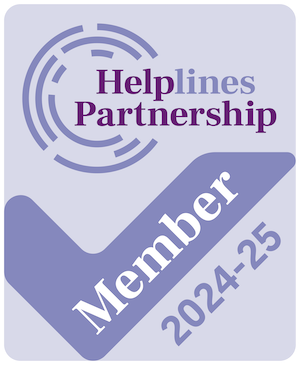HOW TO WORK WITH YOUR LOCAL COUNCIL
Your child might need extra help with anything from accessing school to sleeping safely in your own home. Some children need more help than others.
This is where your local authority comes in. It has a legal responsibility to help families with disabled children, this is often referred to as “child social care”. The council is expected to work closely with health authorities and schools to allow your child to live up to their potential, to help siblings and help parents who are “carers”.
In 2015 the government published the Special Educational Needs and Disability Code of Practice which stated:
“Our vision for children with special educational needs and disabilities is the same as for all children and young people – that they achieve well in their early years, at school and in college, and lead happy and fulfilled lives.”
Every council is legally obliged to publish a detailed summary of the services available to support children with Special Educational Needs and disabilities. This is called the “Local Offer”. It should be a clear, comprehensive, up-to-date guide to health, education and social services and how you, as a parent or carer, can access this. The local offer is not legally binding but gives you a good idea of what is potentially available.
Social services departments have a general duty under Section 17 (10) of the Children Act 1989 to safeguard and promote the interests of ‘children in need,’ and to promote their upbringing by their families.
Children in need include:
1. those who are ‘unlikely to achieve or maintain, or to have the opportunity of achieving or maintaining a reasonable standard of health or development without the provision of services by a local authority’,
2. or whose ‘health or development is likely to be significantly impaired or further impaired without the provision of such services by a local authority’,
3. or are `disabled’.
WHAT THE SERVICES INCLUDE
The local authority might provide help with personal care of your child, for example extra equipment or a helper to assist getting them bathed and dressed or in and out of bed. These needs will be assessed by an occupational therapist.
It might provide help with recreation, for example days out or special equipment for a recreational need, like a computer.
It could provide help accessing education, like travel to school or home adaptations like hoists or handrails. LINK TO HOME ADAPTATIONS
It should also provide a range of services enabling parents to take a “short break” from “caring”. (See Short Breaks below).
HOW THEY DO THIS
The first step is to carry out an assessment of your child. Every child in need is entitled to be assessed to see what extra help is required to meet those needs.
An assessment is crucial in unlocking services like help in the home for your child and family. It gives you a chance to say what you think is required.
WHAT HAPPENS
Someone from the local authority, possibly a social worker, will come to your home and ask you about your child’s condition and the impact that has on everyday life for your whole family. If your child is mentally able, they will be seen and listened to as part of the process.
This should happen straight away, even if your child does not yet have an EHCP yet (See education section). You can ask for an assessment from the council’s children with disabilities team.
It is best to request this in writing. If you prefer you could ask your GP or a health visitor to write on your behalf.
The assessment will look at:
The developmental needs of your child and whether they are a “child in need”
How you as parents respond to your child’s needs
Your capacity to respond to your child’s needs
Your ability to promote your child’s health and development
The impact your child’s disability has on the wider family.
Ask a friend or relative to be there when you talk to social services to take notes, so you concentrate on your conversation.
In many local authorities a panel decides a package of services that may be offered. A care plan is then written which includes future support and timelines for when this should be in place. You can ask to see the plan before it is signed off.
The plan should give details of: what services will be provided, for how long the services are needed, what the local authority plans to achieve by providing the services, what each person and agency is expected to do, also the date of the next review.
As parents or carers you are entitled to ask for a new assessment if you or your child’s needs change.
WHAT ARE SHORT BREAKS?
In 2011 the government required local authorities to set out services that would enable parents of disabled children to have a break from caring.
These were expected to include:
Day time care in the homes of disabled children
Overnight care in the homes of disabled children or elsewhere
Educational or leisure activities for disabled children
Assistance with care in evenings.
FINANCIAL HELP
Personal budgets
If it is decided that your child qualifies for services from you local council, you might be offered a “personal budget”, an allocated amount of money your council feels will meet your child’s needs.
Direct payments
Local authorities can give payments to carers of disabled children to arrange and buy-in services they have been assessed as needing. This gives you more flexibility to source help.
The payments must only be used to pay for these services.
Your child might qualify for national benefits too see our section here .





